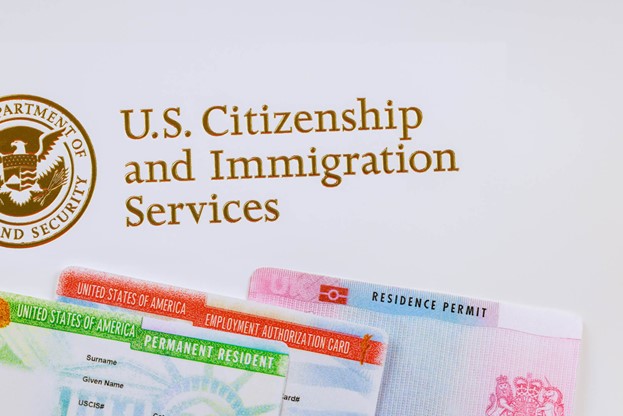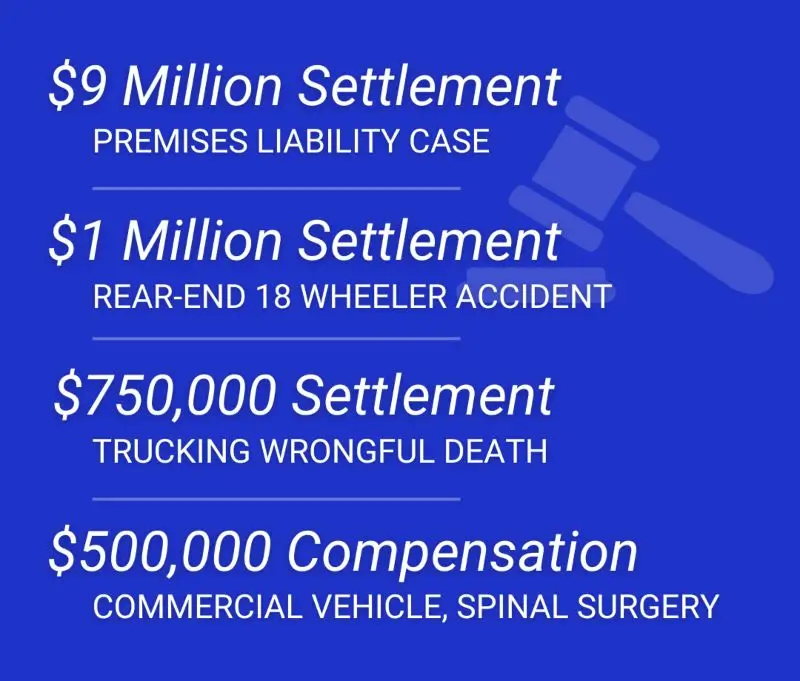Providing Information on Green Cards & More in Houston, TX
Are you unsure about the differences between a green card, a work visa, and temporary residency in Houston, TX? If so, we at Nava Law Group are here to help you. Understanding these immigration options is essential for anyone dreaming of building a career, a family, or a new life in the United States. Whether you’re mapping your future or want to clarify the process, knowing the distinctions can help you choose the right path. We will break down each option’s purpose, process, and advantages. We’ll also provide you with special tips from us to help you make the smartest decision for your situation.

Clarifying Immigration Status in the U.S.
The immigration system in the United States is complex, with multiple ways to enter, work, and build a life here. For many, the terms “green card,” “work visa,” and “temporary residency” seem interchangeable, but each serves a distinct purpose. Picking the right one can determine your work rights, family situation, travel flexibility, and your path to long-term residency or citizenship.Here’s what we’ll outline as you continue reading on:
- The difference between green cards, work visas, and temporary residency
- How to gain each type of status
- Visa and green card features
- Practical steps to determine the best route for your goals
How to Gain Temporary Residency
Temporary residency allows non-citizens to legally reside in the U.S. for a predetermined period. This option is ideal for those looking to visit, study, or work without an immediate commitment to stay forever. Gaining temporary residency depends on your intent, background, and sometimes the specific needs of an employer or school. Here are some of the most common paths:
- Work Visas:
- H-1B: Designed for temporary workers in specialized professional roles requiring at least a bachelor’s degree or equivalent.
- H-2A: Intended for temporary workers employed in agricultural jobs.
- H-2B: Applicable to temporary workers in non-agricultural labor fields.
- L-1: Allows employees of international companies to transfer to a U.S. branch or affiliate of their organization.
- TN (NAFTA): For professionals from Canada and Mexico under the North American Free Trade Agreement.
- Student Visas:
- F-1: Granted to academic students enrolled at accredited institutions in the U.S.
- M-1: Issued for students pursuing vocational or nonacademic studies.
- Other Visas:
- J-1: For exchange visitors involved in cultural, educational, or professional exchange programs.
- B-1: For business visitors attending meetings, conferences, or conducting business activities.
- B-2: For individuals visiting the U.S. for vacations, tourism, or medical purposes.
- O-1: Reserved for those with exceptional skills or achievements in science, arts, business, education, or athletics.
- P-1: For international performers or athletes, as well as members of notable entertainment groups.
- Q-1: For participants in cultural exchange initiatives.
How to Obtain Permanent Residency
Permanent residency status, often called holding a “green card,” allows you to live and work in the U.S. indefinitely. For many, this is the ultimate goal, as it puts you on a path to eventual citizenship and broader family unification benefits. There is no “one size fits all” method. Your best path depends on your background, skills, and U.S. family ties. Here is how you can receive a permanent residency in the country:
- Family-Based Sponsorship: Most green cards issued come through family sponsorship, such as being an immediate relative of a U.S. citizen (spouse, child, or parent).
- Employment-Based Sponsorship: Certain job offers or extraordinary abilities can lead to a green card, with employer sponsorship and labor certification.
- Diversity Visa Lottery: A limited number of green cards are available through a lottery for nationals from countries with low immigration to the U.S.
- Special Immigrant Programs: Includes religious workers, certain juveniles, and Afghani/Iraqi translators.
- Refugee or Asylum Status: After one year, those granted asylum or refugee status may apply for a green card.
- Investment (EB-5): Substantial investment in a U.S. business and job creation can make you eligible.
What is a Visa?
A visa is an official document issued by the U.S. government that permits a foreign national to enter the country for a specific purpose and a set period. Visas do not guarantee entry. They allow travel to a port of entry, where an officer makes the final decision. Visas can be:
- Nonimmigrant Visas: Temporary for specific jobs, study, or travel.
- Immigrant Visas: For those intending to live permanently in the U.S.
What Are the Various Types of Visas?
Each visa has its criteria and privileges. Experienced Houston lawyers at Nava Law Group can help you find the right category and prepare a strong application. There are dozens of U.S. visa classes, but here are some of the most important to know:
- B-1/B-2 Visitor Visas: For business (B-1), tourism, or medical treatment (B-2)
- F-1 Student Visa: For academic studies
- M-1 Student Visa: For vocational/nonacademic programs
- J-1 Exchange Visitor Visa: Research scholars, interns, au pairs, and more
- H-1B Specialty Occupations: For professionals in specialized fields
- L-1 Intracompany Transfer: For executives or managers transferring within a multinational company
- O-1 Extraordinary Ability: For individuals with extraordinary ability in sciences, arts, education, business, or athletics
- E-2 Investor Visa: For investors from treaty countries
- K-1 Fiancé(e) Visa: For those engaged to a U.S. citizen
Visa Duration and Validity
The time a visa is valid depends on the specific type and its associated terms. Some visas, like the B-1/B-2 Visitor Visa, may be valid for several years with the possibility of multiple entries, while others, such as the K-1 Fiancé(e) Visa, are time-sensitive and typically valid for a shorter duration to meet specific purposes. Employment-based visas like the H-1B often have an initial validity of up to three years, with the option to extend under certain conditions. It’s essential to review the terms of the visa and adhere to the expiration date to remain in compliance with U.S. immigration laws. Always consult the visa documentation or seek legal advice on the permitted duration of stay.
What is a Green Card?
A “green card” is an informal term for the Permanent Resident Card. Green card holders, or lawful permanent residents, can live and work anywhere in the United States. Although the card is no longer green, the name has stuck due to the design of earlier versions. Obtaining a green card is a significant milestone, as it is the most stable form of residency before citizenship. Green cards offer a range of rights and responsibilities. Here are the crucial features:
- Permanent Residency: Live and work indefinitely in the U.S.
- Pathway to Citizenship: Eligible to apply for naturalization after a set period (usually 5 years)
- Family Sponsorship: Can often sponsor certain relatives for their residency
- Legal Protections: Eligible for most legal protections and certain public benefits
- Travel Flexibility: Can travel abroad with fewer restrictions than visa holders (lengthy absences may risk status)
- Renewal Needs: Must be renewed every 10 years, but status does not expire
- Responsibility to Report: Must inform USCIS of address changes and adhere to U.S. laws
Green Card Validity
A green card, formally known as a Permanent Resident Card, is typically valid for 10 years for most permanent residents. Conditional permanent residents, such as those with a marriage-based green card, receive a valid card for 2 years. It is essential to renew the green card before it expires to maintain proof of permanent residency. While the card has an expiration date, the permanent resident status does not expire unless it is voluntarily relinquished, revoked, or lost due to violations of U.S. immigration laws or prolonged absences from the United States.
Green Card vs. Visa: The Key Differences
When navigating U.S. immigration options, understanding the distinction between a green card and a visa is essential. Both represent pathways for legal entry and stay in the United States, but their implications and privileges vary significantly. Green cards typically indicate permanent residence and a long-term commitment to living in the U.S. However, visas are often temporary and tied to specific purposes such as work, study, or tourism. Each status carries its own rules and opportunities, depending on the individual’s goals and circumstances. While green cards and visas allow legal presence in the U.S., they serve different purposes and provide distinct rights. The main differences include:
- Duration: Green cards grant indefinite residency; most visas are temporary.
- Work Authorization: Green cards allow open employment; many visas restrict work or require specific sponsors.
- Family Benefits: Green card holders can petition for more types of family members.
- Path to Citizenship: Only green cards create a pathway to naturalization.
- Legal Protections: Greater benefits and protections under the law for green card holders.
- Flexibility: Travel and residency rules are less strict for green card holders (with proper renewal and adherence).
The Purpose of a Work Visa
A work visa is designed to grant temporary legal employment for foreign nationals in the U.S., often tied to an employer or a specific role. The range of work visas allows employers to fill talent gaps and allow professionals to gain experience and income. Types of work visas include the following:
- H-1B Visa: For specialty occupations requiring a bachelor’s degree or equivalent.
- L-1 Visa: Enables international companies to transfer employees to U.S. branches.
- O-1 Visa: For individuals with exceptional achievements in their fields.
- E Visa: For certain investors and traders.
- TN Visa: For Canadian and Mexican professionals under NAFTA/USMCA.
- R Visa: For religious workers.
How to Determine Which Card or Status Is Right for You
Considering your long-term goals, eligibility, and family situation before applying is essential. Here’s a checklist to guide your decision:
- Purpose of Stay: Are you looking for a short visit, study, work experience, or long-term residency?
- Eligibility: Do you meet education, family, or investment requirements?
- Employment Needs: Is your employment temporary, or do you intend to stay long-term?
- Family Plans: Do you plan to bring or sponsor family members?
- Path to Citizenship: Is becoming a U.S. citizen a goal?
- Legal Complexity: Are you comfortable navigating the process, or do you need expert assistance?
- Houston-Specific Factors: Local employers, universities, and community support can affect your options.
Understanding Visa and Green Card Revocation
A visa or green card can be revoked under specific circumstances, which typically involve violations of U.S. immigration laws or failure to comply with the terms of the visa or permanent residency. Reasons for revocation may include criminal activity, providing false information on an application, overstaying the allowed duration, or engaging in activities inconsistent with the visa’s purpose. Additionally, green cards may be revoked if an individual is found to have abandoned their permanent residency, such as by living outside the United States for extended periods without maintaining ties to the country. Awareness of the conditions tied to your visa or green card is crucial to ensure you remain compliant and retain your immigration status.
Choosing Your Path with Confidence
Navigating the U.S. immigration system can be overwhelming, but understanding the difference between green cards, work visas, and temporary residency is a critical first step. By identifying your goals and familiarizing yourself with each option’s benefits and restrictions, you’ll have the foundation to start your application or consult with experts for personalized help. Houston is a vibrant, dynamic city with opportunities for students, professionals, and families. Nava Law Group is here to help you build the future you envision, whether you’re seeking a temporary adventure or a new, permanent home. Contact us today for expert legal assistance, step-by-step application guidance, and peace of mind.








